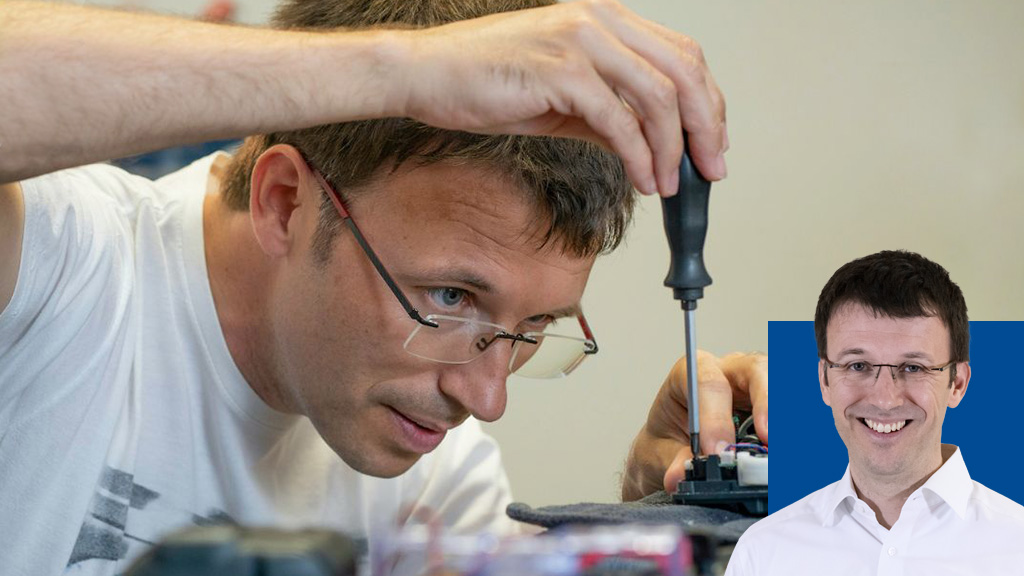Everything used to be better! No, I'm certainly not someone who would subscribe to that sentence. But in the case of some things that were normal thirty or forty years ago, it would be good if we thought back to that.
In the past, when the TV stopped working, you called the TV repairman from whom you bought the set. There was one in every larger village and he came by and repaired the TV. In the past, if you tore a hole in your pants that were otherwise still in good shape, you sewed a patch on them. And if you used to only get a new car every ten years instead of every three, the neighbors didn't think, "I wonder if he doesn't have any money left to drive such an old car."
The crisis as an opportunity for reconsideration
Repairing things and getting them back up and running as long as possible used to be a matter of course. Today, manufacturers must be required by law to design devices in such a way that they can be repaired at all.
Did people think more "sustainably" in the past? I don't think so. But clothes, televisions, washing machines, cars were - compared to the average income - significantly more expensive. They were real purchases. Repairing them was worthwhile. Today, the decision: "Repair or buy the latest model for a little more money?" is much easier - and in the direction of the latest model. We can afford it. We're doing well. But how much longer can we afford to be fine? And I'm not just referring to the question of how long we can continue to exploit raw material and energy resources as mercilessly as we are doing today (Not for much longer, by the way!). I'm also referring specifically to the current crisis situation, in which the costs of raw materials and energy are exploding, in which all products are becoming more expensive - and we have less money left for our current consumption patterns.
The crisis as an opportunity for the circular economy
At allsafe, we see ourselves as pioneers of the circular economy: repairing and reusing instead of buying new. With all:change, you can have defective charging fuses made like new again, including testing according to VDI 2700). And "thanks" to the current explosion in the cost of raw materials and energy, you can even save money in the process. As bad as the current crisis is and as challenging as it is for us: I also see it as an opportunity for you and all of us to switch to a circular economy, to develop a new way of dealing with our earth's resources. To develop a new awareness of the value of things.
And I don't just mean that in terms of business. Perhaps this crisis will trigger a rethink among all of us: "Why shouldn't I dare to go out on the street with my stockings stuffed? Why does it always have to be the latest smartphone? Why do I have to go shopping three times a week? Why do I throw away what could still be repaired?"
The crisis as an opportunity for a new awareness
And the rethinking has already begun. Repair cafés are opening up all over Germany, second hand is the first choice for many, and used is the new chic for many young people. And not at all because they couldn't afford new, but out of conviction. Because it is quite simply the more sensible way to use the earth's limited resources, because it is the only way to stop the sellout of raw materials.
Perhaps it was only out of financial necessity that people used to repair things rather than buy new ones and use household appliances or cars until they were really no longer usable. But they also had an awareness of the value of things. An awareness that has been lost to a large extent in our consumer society - and that we may develop again as a result of the current crisis.
Matthias König
